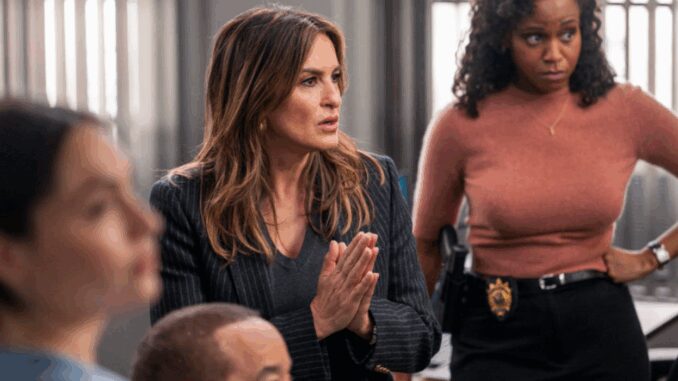
The Unfolding Tapestry: Mariska Hargitay's Life After SVU
The very phrase "Mariska Hargitay opens up about life after SVU" carries a delicious irony, for she is still, unmistakably, Olivia Benson, the stoic, empathetic, and relentlessly dedicated detective (now Captain, then Chief) who has anchored Law & Order: Special Victims Unit for nearly a quarter of a century. Yet, the journey she speaks of isn't one of departure, but of profound expansion, a conscious unfurling of self beyond the formidable shadow of a character who has, for millions, become synonymous with justice and resilience. Her "life after SVU," then, is less about an exit and more about an ongoing evolution within and beyond the very role that defined her, a testament to the fact that some destinies are not single paths but vast, interconnected landscapes.
For decades, the weight of Olivia Benson was immense. She wasn't just a character; she was a cultural touchstone, a surrogate therapist for countless viewers, and a voice for the voiceless. Mariska Hargitay didn't just play Benson; she lived her, inhabiting the trauma, the victories, the quiet despair, and the unwavering hope that fueled the detective. This level of immersion, while yielding an iconic performance, also threatened to create an echo chamber. How does one find "life after" when the "during" is so utterly consuming, so intertwined with public perception and personal commitment? This was the labyrinth she navigated, not by seeking an exit, but by weaving new threads into the existing tapestry.
The first significant thread, and perhaps the most poignant, began not with a career shift, but with the mail. Letters, thousands of them, poured in from survivors of sexual assault and domestic violence, people who found solace, strength, and the courage to speak their truth through Olivia Benson's unflinching portrayal. This wasn't merely fan mail; it was a desperate cry for help, a bridge between fiction and devastating reality. It was here, in the raw vulnerability of these shared stories, that Mariska Hargitay's "life after SVU" truly began to take shape. It wasn't about Hollywood projects or new acting roles; it was about purpose. This profound realization birthed the Joyful Heart Foundation in 2004, an organization dedicated to transforming the way society responds to sexual assault, domestic violence, and child abuse. This was not a side hustle; it was a second vocation, a literal manifestation of the compassion Olivia Benson embodied, projected onto the real world with tangible results.
This pivot was less a leap and more an organic blossoming. It illustrated a crucial aspect of her journey: she wasn't shedding Olivia Benson, but rather, allowing Benson's ethos to inform and inspire her own actions. The actress became an advocate, using her formidable platform not for self-promotion, but for systemic change. The same empathy that shone in Benson's eyes now fueled a tireless pursuit of justice for survivors, leading to policy changes, advocacy for rape kit reform, and the creation of safe spaces. This was "life after SVU" not as a physical departure from the set, but as a profound expansion of her impact, transforming a fictional role into a living, breathing blueprint for social good.
As the years unfolded, her journey continued to branch out, still rooted in the SVU soil, yet reaching for new sunlight. She stepped behind the camera, directing episodes of the very show she starred in, gaining a new perspective on storytelling and leadership. She became a producer, investing her insight and experience into the show's continued relevance. These weren't escapes from Olivia Benson; they were deeper dives into the creative and operational layers of the world she had helped build. This demonstrated a mastery not just of performance, but of the entire ecosystem of her craft. It was a subtle yet significant shift, from being the embodiment of a character to becoming a steward of an entire narrative legacy.
Mariska Hargitay's "life after SVU" is therefore a beautiful paradox. It is a story of continuous becoming, an ongoing odyssey where the lines between actress and activist, character and crusader, have blurred into a rich, complex mosaic. It's a journey that speaks volumes about identity in a world that often demands narrow definitions. She didn't have to leave Olivia Benson to find her true purpose; she allowed Olivia Benson to illuminate it. Her experience reminds us that "after" isn't always an endpoint, but often a new beginning, an unfolding of possibilities that we, and perhaps even she, could never have fully anticipated. It's a journey not of separation, but of synthesis, proving that true impact isn't found in what you leave behind, but in how deeply and broadly you choose to live.
